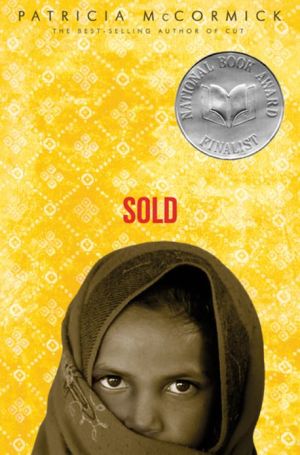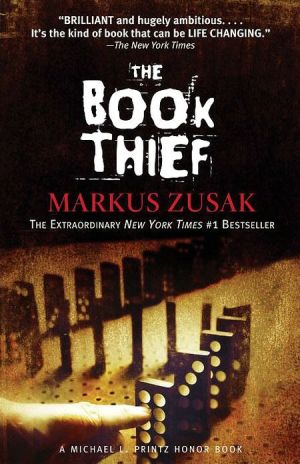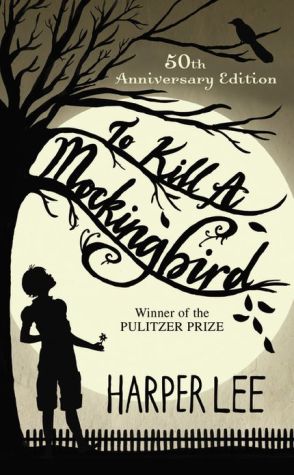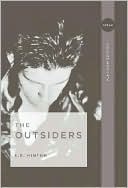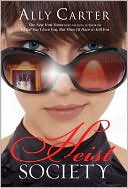Sold
Lakshmi is a thirteen-year-old girl who lives with her family in a small hut on a mountain in Nepal. Though she is desperately poor, her life is full of simple pleasures, like playing hopscotch with her best friend from school, and having her mother brush her hair by the light of an oil lamp. But when the harsh Himalayan monsoons wash away all that remains of the family's crops, Lakshmi's stepfather says she must leave home and take a job to support her family. \ He introduces her to a...
Search in google:
Lakshmi is a thirteen-year-old girl who lives with her family in a small hut on a mountain in Nepal. Though she is desperately poor, her life is full of simple pleasures, like playing hopscotch with her best friend from school, and having her mother brush her hair by the light of an oil lamp. But when the harsh Himalayan monsoons wash away all that remains of the family’s crops, Lakshmi’s stepfather says she must leave home and take a job to support her family. He introduces her to a glamorous stranger who tells her she will find her a job as a maid in the city. Glad to be able to help, Lakshmi journeys to India and arrives at “Happiness House” full of hope. But she soon learns the unthinkable truth: she has been sold into prostitution.An old woman named Mumtaz rules the brothel with cruelty and cunning. She tells Lakshmi that she is trapped there until she can pay off her family’s debt—then cheats Lakshmi of her meager earnings so that she can never leave.Lakshmi’s life becomes a nightmare from which she cannot escape. Still, she lives by her mother’s words—Simply to endure is to triumph—and gradually, she forms friendships with the other girls that enable her to survive in this terrifying new world. Then the day comes when she must make a decision—will she risk everything for a chance to reclaim her life? Written in spare and evocative vignettes, this powerful novel renders a world that is as unimaginable as it is real, and a girl who not only survives but triumphs.Publishers WeeklyThis hard-hitting novel told in spare free verse poems exposes the plight of a 13-year-old Nepali girl sold into sexual slavery. Through Lakshmi's innocent first-person narrative, McCormick (Cut) reveals her gradual awakening to the harshness of the world around her. Even in their poverty-stricken rural home, Lakshmi finds pleasure in the beauty of the Himalayan mountains, the sight of Krishna, her betrothed, and the cucumbers she lovingly tends, then sells at market. After a monsoon wipes out their crops, her profligate stepfather sells Lakshmi to an "auntie" bound for the city. During her journey, the girl acquires a visual and verbal vocabulary of things she has never seen before: electric lights, a TV. Soon a hard-won sense of irony invades her narrative, too. Early on, a poem entitled "Everything I Need to Know" marks her step into womanhood (after her first menstrual cycle); later, "Everything I Need to Know Now" lists her rules as an initiated prostitute. In her village, Lakshmi had rebelliously purchased her first Coca-Cola for her mother, after her stepfather sold her; later, in Calcutta, she overhears two johns talking and realizes, "the price of a bottle of Coca-Cola at Bajai Sita's store./ That is what he paid for [a turn with] me." The author beautifully balances the harshness of brothel life with the poignant relationships among its residents; especially well-drawn characters include the son of one of the prostitutes, who teaches Lakshmi to read and speak some English and Hindi, and clever Monica, who earns her freedom but gets sent back by her shamed family. Readers will admire Lakshmi's grit and intelligence, and be grateful for a ray of hope for this memorable heroine at book's end. Ages 12-up. (Sept.) Copyright 2006 Reed Business Information.
\ Publishers WeeklyThis hard-hitting novel told in spare free verse poems exposes the plight of a 13-year-old Nepali girl sold into sexual slavery. Through Lakshmi's innocent first-person narrative, McCormick (Cut) reveals her gradual awakening to the harshness of the world around her. Even in their poverty-stricken rural home, Lakshmi finds pleasure in the beauty of the Himalayan mountains, the sight of Krishna, her betrothed, and the cucumbers she lovingly tends, then sells at market. After a monsoon wipes out their crops, her profligate stepfather sells Lakshmi to an "auntie" bound for the city. During her journey, the girl acquires a visual and verbal vocabulary of things she has never seen before: electric lights, a TV. Soon a hard-won sense of irony invades her narrative, too. Early on, a poem entitled "Everything I Need to Know" marks her step into womanhood (after her first menstrual cycle); later, "Everything I Need to Know Now" lists her rules as an initiated prostitute. In her village, Lakshmi had rebelliously purchased her first Coca-Cola for her mother, after her stepfather sold her; later, in Calcutta, she overhears two johns talking and realizes, "the price of a bottle of Coca-Cola at Bajai Sita's store./ That is what he paid for [a turn with] me." The author beautifully balances the harshness of brothel life with the poignant relationships among its residents; especially well-drawn characters include the son of one of the prostitutes, who teaches Lakshmi to read and speak some English and Hindi, and clever Monica, who earns her freedom but gets sent back by her shamed family. Readers will admire Lakshmi's grit and intelligence, and be grateful for a ray of hope for this memorable heroine at book's end. Ages 12-up. (Sept.) Copyright 2006 Reed Business Information.\ \ \ \ \ Children's Literature - Uma Krishnaswami\ While her mother would have liked thirteen-year-old Lakshmi to stay in school, Lakshmi instead experiences the cruel fate that is all too commonplace in some poverty-stricken rural regions of Nepal. She is sold by her stepfather to cover his gambling debts and ends up in a brothel in India. McCormick takes on the human rights issue of young girls sold into prostitution in this fictional first person story. The book brings the reader to an understanding that is certainly deeper than the superficiality of Gloria Whelan's comparable Homeless Bird, which also addresses a social issue of the subcontinent, the plight of child widows. In this title the brothel scenes are heart-rending, and McCormick uses language both lyrical and spare to lead the reader into this deeply troubled and troubling world. The occasional, unpredictable kindness of strangers keeps Lakshmi's strength of purpose alive so that in the end she is able to make a bid for freedom. McCormick's unrhymed verse seems to ride the fragility of Lakshmi's bruised spirit. Some cultural touches seem less deft. The narrator's voice wavers during descriptions of customs and festivals, context descriptions that convey the particular fascinations of a visitor rather than the familiarity of one speaking from within. The ultimate resolution of Lakshmi's escape being made possible by Americans feels disappointing. It seems to run counter to the heartfelt tale in the afterword about Nepali women, some of them survivors of brothel life, working to fight this sinister trade. Still, this is a story of courage, which is precisely what it takes to plant one's literary work in unfamiliar soil.\ \ \ VOYAThirteen-year-old Lakshmi is like most girls-she helps her mother, plays with her baby brother, and dreams of one day marrying and having babies of her own. When the monsoons destroy the crops on her family's Nepal farm, her stepfather arranges for her to leave their village to become a maid for a rich lady in the city. Instead Lakshmi is sold into a Calcutta brothel, facing unspeakable cruelty and horror, her memories of home all she has to help her endure. McCormick tells Lakshmi's story in brief, poetic scenes, painting a haunting and thought-provoking picture of helplessness and hope. The writing is breathtaking in both its simplicity and its attention to detail. Scenes in the brothel are tenderly drawn, as Lakshmi and the other girls and women strive to find the smallest bit of joy in the bleakness of their lives. The juxtaposition of Lakshmi's life in her village, where electricity is a luxury, against the city with its cell phones and soap operas is jarring, an eerie reminder to the reader that nightmares like hers are happening right now in cities around the world. This novel is not to be missed, and readers will find themselves thinking about Lakshmi and the real girls whose lives inspired this stunning novel long after they turn the last page.\ \ \ \ \ KLIATTTo prepare to write this novel (in poetry format), McCormick traveled to Nepal and India to interview prostitutes in brothels and also girls who have been rescued from the sex trade. In her note at the end of the story she says, "Each year, nearly 12,000 Nepali girls are sold by their families--intentionally or unwittingly--to a life of sexual slavery in the brothels of India. Worldwide, the US State Department estimates that nearly half a million children are trafficked into the sex trade each year." Sold is the story of one young Nepali girl who is sold by her stepfather into prostitution. She is 14-years-old when she is rescued by some Americans who visit brothels in India to find young girls who want to escape. Lakshmi is the narrator. She is a young village girl with a loving mother, baby brother, and greedy stepfather in Nepal, where such girls and women in general know no other way than to obey the men in their family. Soon after she gets her first period, her stepfather starts looking at her as a thing to sell for a profit, not as a human being. In the narrative, McCormick details how the cruel system works, with nanve girls believing they are going to get jobs as maids to send money to their family. They end up in brothels with no way to escape. The life in the brothels is described in some detail, from the beatings and the drugging of innocent young girls to force them to submit to men, to the dubious joy of TV and babies, to the way some few girls are being rescued. It's frightening--most girls become diseased, dying young of AIDS. The men who pay the brothel owners to sleep with the girls are not required to wear condoms, and the girls have no power to protect themselves. Thisis an important story, and McCormick tells it well. The cover, a photograph of the face of a young girl, is compelling. KLIATT Codes: JSA--Recommended for junior and senior high school students, advanced students, and adults. 2006, Hyperion, 264p., $15.99.. Ages 12 to adult. \ —Claire Rosser\ \ \ \ \ KLIATTTo quote the review of the hardcover in KLIATT, September 2006: To prepare to write this novel (in poetry format), McCormick traveled to Nepal and India to interview prostitutes in brothels and also girls who have been rescued from the sex trade. In her note at the end of the story she says, "Each year, nearly 12,000 Nepali girls are sold by their families—intentionally or unwittingly—to a life of sexual slavery in the brothels of India. Worldwide, the US State Department estimates that nearly half a million children are trafficked into the sex trade each year." Sold is the story of one young Nepali girl who is sold by her stepfather into prostitution. She is 14 years old when she is rescued by some Americans who visit brothels in India to find young girls who want to escape. Lakshmi is the narrator. She is a young village girl with a loving mother, baby brother, and greedy stepfather in Nepal, where such girls and women in general know no other way than to obey the men in their family. Soon after she gets her first period, her stepfather starts looking at her as a thing to sell for a profit, not as a human being. In the narrative, McCormick details how the cruel system works, with naive girls believing they are going to get jobs as maids to send money to their family. They end up in brothels with no way to escape. The life in the brothels is described in some detail, from the beatings and the drugging of innocent young girls to force them to submit to men, to the dubious joy of TV and babies, to the way some few girls are being rescued. It's frightening—most girls become diseased, dying young of AIDS. The men who pay the brothel owners to sleep with the girls arenot required to wear condoms, and the girls have no power to protect themselves. This is an important story, and McCormick tells it well. The cover, a photograph of the face of a young girl, is compelling. (A National Book Award finalist, and an ALA Best Book for YAs.) Reviewer: Claire Rosser\ \ \ \ \ School Library JournalGr 9 Up-As this heartbreaking story opens, 13-year-old Lakshmi lives an ordinary life in Nepal, going to school and thinking of the boy she is to marry. Then her gambling-addicted stepfather sells her into prostitution in India. Refusing to "be with men," she is beaten and starved until she gives in. Written in free verse, the girl's first-person narration is horrifying and difficult to read. "In between, men come./They crush my bones with their weight./They split me open./Then they disappear." "I hurt./I am torn and bleeding where the men have been." The spare, unadorned text matches the barrenness of Lakshmi's new life. She is told that if she works off her family's debt, she can leave, but she soon discovers that this is virtually impossible. When a boy who runs errands for the girls and their clients begins to teach her to read, she feels a bit more alive, remembering what it feels like to be the "number one girl in class again." When an American comes to the brothel to rescue girls, Lakshmi finally gets a sense of hope. An author's note confirms what readers fear: thousands of girls, like Lakshmi in this story, are sold into prostitution each year. Part of McCormick's research for this novel involved interviewing women in Nepal and India, and her depth of detail makes the characters believable and their misery palpable. This important book was written in their honor.-Alexa Sandmann, Kent State University, OH Copyright 2006 Reed Business Information.\ \ \ \ \ Kirkus ReviewsIn her village in Nepal, Lakshmi's life is more than difficult and requires her to endure hunger, harsh weather and poverty. When she is sold to an itinerant "Auntie," she thinks she'll be working as a maid in the city. She's determined to excel, even though she can't imagine the place. She arrives in a brothel, working in guaranteed slavery until she is broken or dies, astonished at the charges beyond what she could possibly earn for everything she touches. The harshness of her life in this new country of India, feeling torn from all that is familiar, comes close to crushing her, yet she endures. The tiny moments of peace, learning the words in books, the friendships and respect that develop provide a relief for readers even as admiration for Lakshmi's strength and capacity for sorrow grows. Written as a prose poem, Sold focuses on the essential question of whether it is possible to trust when all that one has trusted has been proven untrustworthy. McCormick provides readers who live in safety and under protection of the law with a vivid window into a harsh and cruel world-one most would prefer to pretend doesn't exist. (Fiction. YA)\ \ \ \ \ From the Publisher"Hard-hitting . . . poignant. The author beautifully balances the harshness of brothel life with the poignant relationships among its residents." —-Publishers Weekly Starred Review\ \
